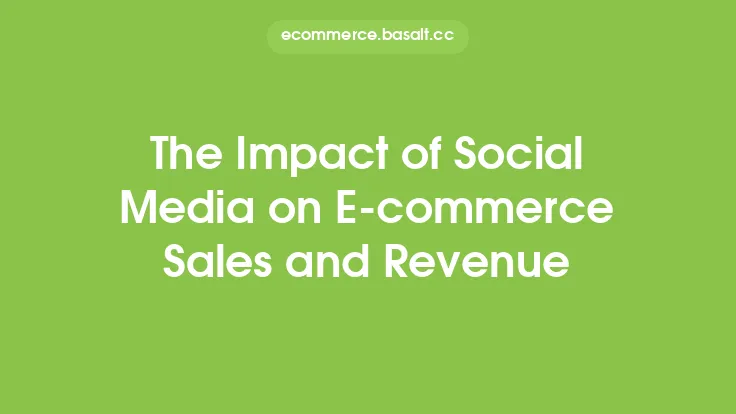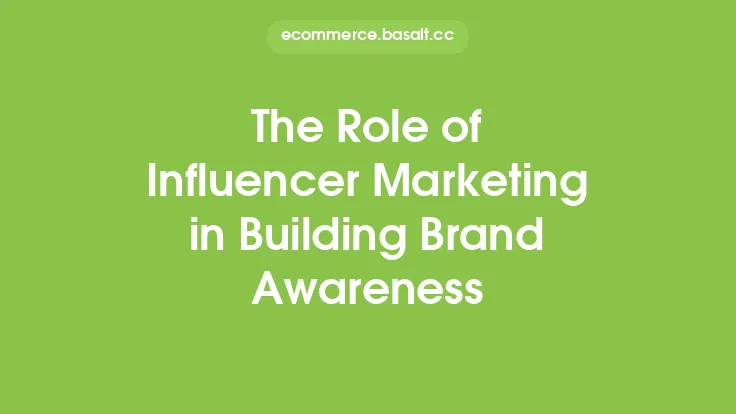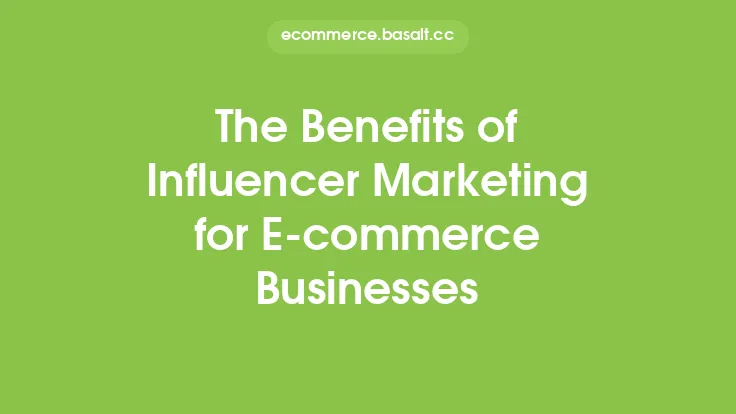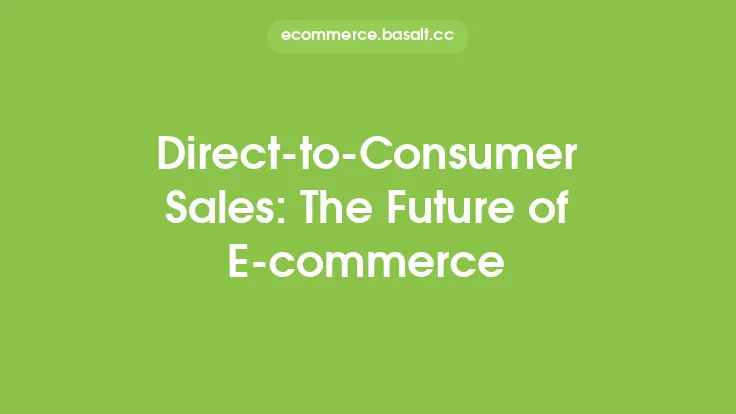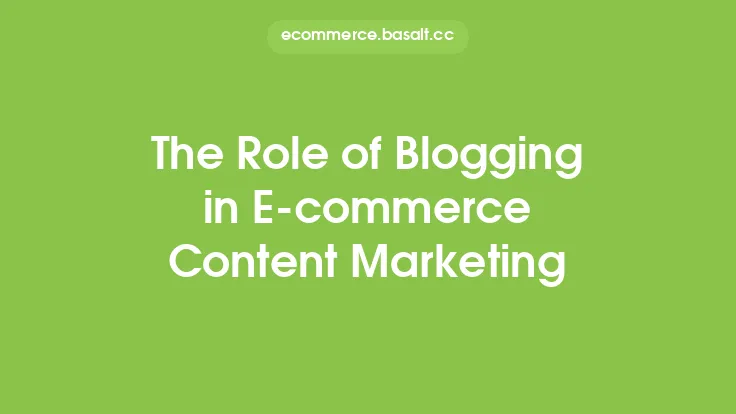In recent years, the e-commerce industry has experienced significant growth, with online sales projected to continue increasing in the coming years. As a result, businesses are constantly looking for innovative ways to reach their target audience, build brand awareness, and drive sales. One effective strategy that has gained popularity is influencer marketing. By partnering with social media influencers, e-commerce businesses can tap into their vast following, increase brand visibility, and ultimately drive sales.
What is Influencer Marketing?
Influencer marketing is a form of marketing where businesses partner with individuals who have a large following on social media platforms, such as Instagram, YouTube, or TikTok. These influencers have built a reputation and trust with their audience, and as a result, their endorsements can have a significant impact on their followers' purchasing decisions. Influencer marketing can take many forms, including sponsored posts, product reviews, and affiliate marketing. By partnering with influencers, e-commerce businesses can reach a targeted audience, increase brand awareness, and drive sales.
Benefits of Influencer Marketing for E-commerce
Influencer marketing offers several benefits for e-commerce businesses. Firstly, it allows businesses to reach a targeted audience, increasing the likelihood of converting followers into customers. Secondly, influencer marketing can help build brand awareness, establishing the business as a reputable and trustworthy brand. Thirdly, influencer marketing can drive sales, as influencers' endorsements can have a significant impact on their followers' purchasing decisions. Finally, influencer marketing can provide businesses with valuable content, such as product reviews and tutorials, which can be used to engage with customers and promote products.
Types of Influencers
There are several types of influencers that e-commerce businesses can partner with, each with their own unique characteristics and benefits. Nano-influencers, for example, have a small but highly engaged following, typically between 1,000 and 10,000 followers. Micro-influencers, on the other hand, have a larger following, typically between 10,000 and 100,000 followers. Mid-tier influencers have a significant following, typically between 100,000 and 1 million followers, while macro-influencers have a massive following, typically over 1 million followers. Each type of influencer has its own benefits, and businesses should choose the type that best aligns with their marketing goals and target audience.
Measuring the Success of Influencer Marketing
Measuring the success of influencer marketing is crucial to understanding its impact on e-commerce businesses. There are several metrics that businesses can use to measure the success of influencer marketing, including engagement rates, reach, and conversions. Engagement rates, such as likes and comments, can indicate how well an influencer's content is resonating with their audience. Reach, on the other hand, can indicate how many people are seeing the influencer's content. Conversions, such as sales and website traffic, can indicate the ultimate success of the influencer marketing campaign. By tracking these metrics, businesses can refine their influencer marketing strategy and optimize their campaigns for better results.
Best Practices for Influencer Marketing
To get the most out of influencer marketing, e-commerce businesses should follow several best practices. Firstly, businesses should choose influencers who align with their brand values and target audience. Secondly, businesses should clearly communicate their marketing goals and expectations to the influencer. Thirdly, businesses should provide the influencer with creative freedom, allowing them to produce high-quality content that resonates with their audience. Finally, businesses should track the success of their influencer marketing campaigns, using metrics such as engagement rates and conversions to refine their strategy and optimize their campaigns.
Common Challenges of Influencer Marketing
Despite the benefits of influencer marketing, there are several common challenges that e-commerce businesses may face. Firstly, finding the right influencer can be difficult, as businesses need to choose an influencer who aligns with their brand values and target audience. Secondly, managing influencer relationships can be time-consuming, as businesses need to communicate with influencers, track their content, and measure the success of their campaigns. Thirdly, ensuring the quality of influencer content can be challenging, as businesses need to ensure that the content meets their marketing goals and expectations. Finally, measuring the ROI of influencer marketing can be difficult, as businesses need to track the success of their campaigns and attribute sales to the influencer marketing campaign.
The Future of Influencer Marketing
The future of influencer marketing looks bright, with the industry projected to continue growing in the coming years. As social media platforms continue to evolve, influencer marketing will need to adapt, with businesses using new formats, such as video and live streaming, to reach their target audience. Additionally, the rise of new social media platforms, such as TikTok, will provide businesses with new opportunities to reach their target audience. Finally, the increasing importance of authenticity and transparency in influencer marketing will require businesses to be more selective in their choice of influencers, choosing those who align with their brand values and target audience.
Conclusion
Influencer marketing has become a crucial component of e-commerce marketing strategies, allowing businesses to reach a targeted audience, build brand awareness, and drive sales. By partnering with social media influencers, e-commerce businesses can tap into their vast following, increase brand visibility, and ultimately drive sales. As the e-commerce industry continues to evolve, influencer marketing will play an increasingly important role, providing businesses with a powerful tool to reach their target audience and achieve their marketing goals. By following best practices, measuring the success of influencer marketing campaigns, and adapting to the evolving social media landscape, e-commerce businesses can get the most out of influencer marketing and drive long-term growth and success.
